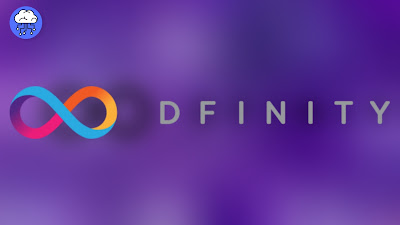Everything To Know About Internet Computer (ICP)
The Internet Computer is an open-source crowd computing platform built by the DFINITY Foundation that is designed to address some of the major challenges faced today with the traditional internet of today - such as poor system security, monopolization of internet services and misuse of personal user data.
It is set out to build a modern internet capable of hosting practically any scale of application - ranging from simple smart contracts and DeFi applications to pan-industry platforms and enterprise systems. The system is theoretically capable of hosting “all of humanity's software logic and data in smart contracts.”
The project was founded and first announced in 2015, and conducted several funding rounds throughout 2018 - raising a total of $195 million. The growth and development of the Internet Computer is currently being overseen by the DFINITY Foundation, a non-profit based in Zurich, with offices in Palo Alto, San Francisco, Tokyo and remote teams globally.
Beyond this, the platform is currently being further established by an extensive community of developers, who are able to use DFINITY’s developer resources to build and launch their own software on the internet computer.
How Does the Internet Computer Work?
The Internet Computer is built on a novel decentralized protocol known as Internet Computer Protocol (ICP), which combines the collective computing power of a large number of computer nodes to produce a single unified computer platform capable of supporting applications of any scale and complexity.
With the Internet Computer, smart contracts are segregated into secure code units, known as "canisters," which are the computational units that function as individual applications or functions. End users are able to interact with these canisters through an entry point — and their user experience will be much like the internet of today.
Unlike the traditional internet, the Internet Computer will directly host and serve applications and data on-chain, rather than relying on centralized infrastructure. At its base layer, a network of data centers can launch nodes running the ICP protocol. These nodes can then be arranged into subnetworks that are used to host software canisters that users can interact with as part of their web experience.
As of March 2021, the platform launched its semi-public mainnet and data centers and developers are currently being onboarded. The ICP token isn't yet trading on exchanges, but several ICP futures products (known as IOUs) are trading various exchange platforms - including MXC.
A 20-year roadmap for the project was recently revealed by the DFINITY Foundation, below we have included a summary of its goals.
- Within five years: schools will teach about the Internet Computer and Motoko (its programming language). Some open internet services will have achieved substantial success and there will be widespread understanding of what the ICP is.
- Within 10 years: The internet computer will be on a path to overtake big tech's closed proprietary internet ecosystem; funds will continue to be redirected to the ICP from legacy internet companies; and DeFi will be on par with traditional financial technology.
- Within 20 years: The ICP will be bigger than the closed internet of today. Most of society's crucial infrastructure will be hosted on it and individuals the world over will benefit from massively improved privacy and personal freedoms.
Tags:
Cryptocurrency
